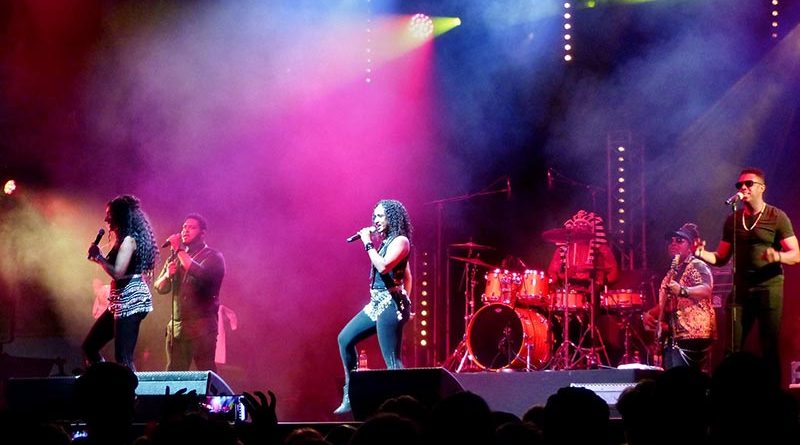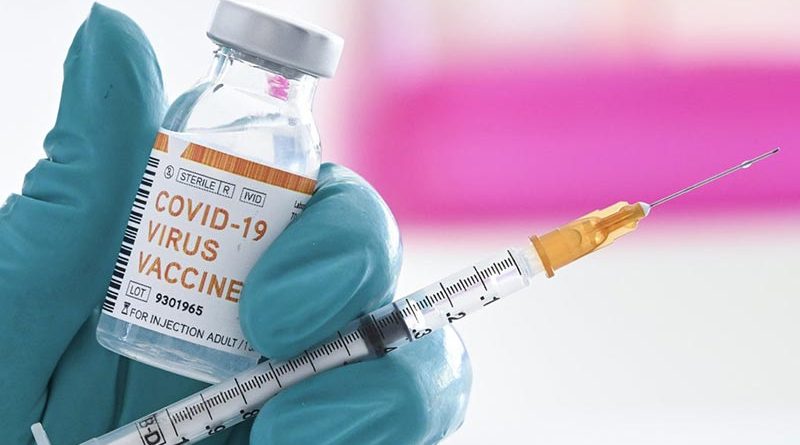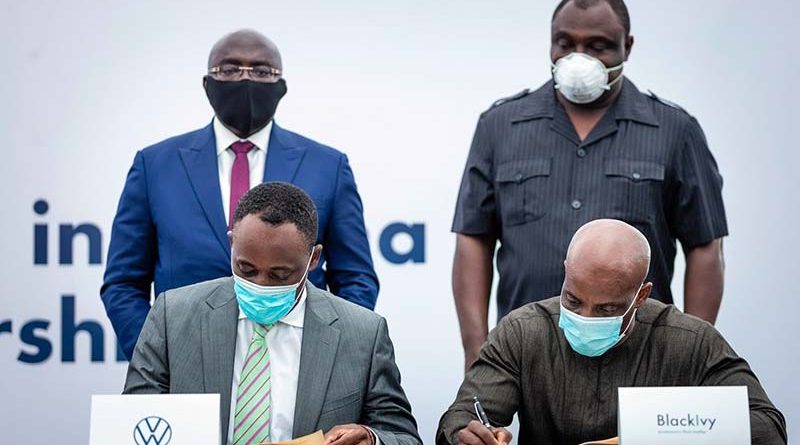DAKAR/JOHANNESBURG, Oct 21 (Thomson Reuters Foundation) - In rural Sierra Leone, teenagers tuned into solar-powered radios for their lessons, while Kenyan students texted a code to receive free learning guides on their phones.
As COVID-19 shut Africa's schools, governments and charities rushed to make learning accessible to millions of pupils without internet or even electricity, sparking innovations that could keep children learning long after the pandemic has passed.
"The situation... pushed all the governments and education ministries to think in a different way," said Elena Locatelli, an advisor on education in emergencies at the U.N. children's agency UNICEF.
In a matter of months, officials set up distance-learning programmes, often via TV and radio, while charities and start-ups distributed devices and materials to supplement them.
Even as children now return to classrooms, many of the initiatives are set to continue for vulnerable children who struggle to attend school due to poverty or conflict.
Sub-Saharan Africa has the world's highest rate of out-of-school children, with about a third missing out on classes in 2018, according to the U.N. cultural agency UNESCO.
"All these solutions... can also be used in situations in which children have no access to school due to conflict or insecurity, or for children that find themselves on the move," Locatelli told the Thomson Reuters Foundation.
The rise of distance learning could "completely transform" how countries think about education, said Sarah Smith from the International Rescue Committee (IRC), which has been developing audio lessons for refugee children.
"It could open up opportunities for formal education systems to welcome in things like a radio programme or a new app into their curriculum in a way they have been reluctant to do in the past," said Smith, senior education director at the IRC.

Education needs are particularly dire in Burkina Faso, where violence has forced 1 million people - more than one in every 20 inhabitants - to flee their homes. Islamist groups wage frequent attacks across the country's northern scrublands.
Before the coronavirus hit in March, 2,512 schools were closed because of the security situation, said Education Minister Stanislas Ouaro.
Although the government had talked about setting up distance learning, it took the pandemic to make it happen, he said.
"Coronavirus was also an opportunity for us," Ouaro said.
"We realized we could develop radio and digital classes that could be a response to the pandemic and to other types of crises, such as the security crisis and natural disasters."
Burkina Faso started broadcasting lessons on radio, television and online after closing all schools in March. Schools reopened for the new year on Oct. 1, but radio classes are continuing for children in conflict-hit areas.
"For us, it's a path of no return," Ouaro said.
While distance learning cannot replace school, it will now be the go-to solution any time education is disrupted, he said.
The U.N. refugee agency (UNHCR) has backed national remote-learning programmes by distributing solar-powered radios, pens and notebooks in Burkina Faso, Mali and Niger - urging the countries to keep broadcasting lessons after COVID-19.
"We would like for next year to continue this activity and to organise some kind of listening groups. It can be in schools where schools can reopen, or it can be in the community where schools cannot reopen," said Charlotte Berquin, an education specialist for West and Central Africa at UNHCR.
'CHALLENGE AND OPPORTUNITY'
Even when children are in school, distance-learning solutions can help address challenges such as overcrowded classrooms, a lack of trained teachers and inadequate materials, said Yesani Kapanda, education programme manager for the charity Voluntary Service Overseas (VSO) in Malawi.
This is the aim of VSO's "Unlocking Talent through Technology" project, which provides solar-powered tablets with interactive courses for children to follow at their own pace.
The project started in five schools in 2014 but was scaled up during the pandemic to bring at-home learning to some 200,000 students in total. VSO ultimately hopes to integrate the use of tablets into all primary schools in Malawi.
"There is low absenteeism and dropout rates in the schools (where tablets are used) and the project has reduced the gender dynamics between girls and boys in the acquisition of numeracy and literacy skills," Kapanda said.

In Kenya, the charity Metis took another approach by distributing home learning guides in person and via text message and WhatsApp.
They estimate they were able to reach more than 30,000 students during the coronavirus lockdown with learning materials.
Students send the letters 'EDU' to a certain number and this triggers a series of questions to determine what content to send the learner, with lessons on school subjects including mathematics as well as gardening, storytelling and theatre.
Text-based learning is seen as a possible growth area too.
Eneza Education, an education technology social enterprise operating in Kenya, Ghana and Ivory Coast, opened its SMS platform without charge during lockdown, leading to its use by 2.2 million learners who did not have steady internet access.
The company has now launched in Rwanda with plans to assist more vulnerable students.
Metis co-founder Rebecca Ume Crook said she envisions the model being used long after the pandemic to provide children and caregivers who need support with learning ideas and creative materials.
"We have the challenge and the opportunity to reimagine education as a result of this pandemic, but we have to do so equitably," she said.
Source: Thomas Reuters Foundation
KIM Sledge of the band Sister Sledge will donate proceeds from a cover of the band’s classic song “We Are Family” to the World Health Organization Foundation, WHO Director-General Tedros Adhanom Ghebreyesus has announced.
“I would like to thank Kim Sledge for her kind offer to donate proceeds from the sale of her special edition cover of We Are Family,” said Tedros, adding that the money would be used to support the COVID-19 response and strengthen health services around the world.
Kim Sledge joined Tedros at a news briefing. – Thomson Reuters Foundation.
Source: The African Mirror
A South African company part-owned by the government is in talks with the global COVID-19 vaccine distribution scheme and pharmaceutical companies to produce some of the vaccines the country needs to protect itself against the disease.
The Biovac Institute, a Cape Town-based joint venture between the government and private sector, could produce up to 30 million doses of COVID-19 vaccines per year, depending on the technology involved, Chief Executive Morena Makhoana told Reuters.
Depending on whether the vaccines require a one- or two-dose regimen, that could be enough for a quarter or half of South Africa’s population.
“We need to look at who is likely to get to the finishing line and who has the technological fit,” Makhoana said, when asked which vaccine candidate Biovac might partner with. “Discussions are happening and we are fairly confident that … we will be able to clinch a deal.”
The Coalition for Epidemic Preparedness Innovations (CEPI), the foundation that co-leads the COVAX scheme alongside the World Health Organization and vaccines alliance GAVI, has identified Biovac as a potential drug product manufacturer but has not signed an agreement yet, a CEPI spokesman said.
Drug product manufacturing typically includes steps like vaccine formulation, filling and finishing of vials, labelling and packaging, he said.
The COVAX scheme aims to deliver 2 billion doses of COVID-19 vaccine by the end of 2021. CEPI is reserving capacity with vaccine manufacturers worldwide so that goal can be met.
South Africa has submitted a non-binding confirmation of intent to participate in COVAX.
Makhoana said Biovac could not make “live virus” vaccines at this stage, precluding some vaccines being trailed in South Africa in partnership with Oxford University and Johnson & Johnson. He declined to name the companies Biovac was speaking to.
The Department of Science and Innovation, the ministry that manages the government’s stake in Biovac, supports its ambitions because it wants to stimulate local manufacturing and limit the impact of vaccine procurement on the country’s balance of payments, Director-General Phil Mjwara said.
Currently, South Africa’s government buys about 95% of the vaccines supplied annually by Biovac, covering diseases such as tuberculosis, cervical cancer and influenza, with the rest sold to countries in the rest of Africa.
In the past Biovac has partnered with companies like Pfizer and Sanofi. – Thomson Reuters Foundation.
Source: The African Mirror
AFRICAN MIRROR REPORTER
A motor vehicle manufacturing company and a business that specializes in housing, healthcare and industrial real estate, have formed a unique partnership to promote an environmentally-friendly lifestyle across Ghana.
The objectives of the special partnership between VW-Ghana and BlackIvy are:
- To increase affordability of homes and passenger vehicles in Ghana
- To provide modern and green mobility
- promote a larger value chain for the automotive manufacturing industry at BlackIvy’s WestPark Industrial Park in Ghana’s resource-rich Western Region
The strategic collaboration between VW-Ghana and BlackIvy was signed on September 16 in Accra, Ghana, in the presence of Dr Mahamudu Bawumia, the vice president of Ghana and Robert Ahomka-Lindsay, Ghana’s deputy minister of trade and industry.
The plan by VW-Ghana and BlackIvy for sustainable mobility including assessing the viability of reducing carbon emissions by piloting a Compressed Natural Gas (CNG) filling station for trucks and commercial vehicles. This pilot would be the first CNG filling station in West Africa, while a fleet of CNG trucks could save on logistics cost, reduce carbon emissions by up to 20%, and decrease harmful particles, a driver of air pollution and associated health risks, by approximately 85%.
Long-term, the partnership could deliver Volkswagen electric vehicles and the associated charging infrastructure to Ghana.
“The strategic partnership we formed today with BlackIvy is part of Volkswagen’s greater goal of growing its presence in the Sub-Saharan region, in a way that benefits the citizens of this region,” said Rochelle Reddy, Volkswagen Group South Africa’s Director of Sub-Saharan Africa Operations. “With BlackIvy, we have found a partner with the same values. This agreement paves the way for sustainable and accessible mobility in Ghana.”
“BlackIvy launched in Ghana six years ago to deliver essential products and services with a relentless focus on quality. In Volkswagen, we have found a partner that shares our commitment to Ghana made craftsmanship and innovation,” said Jean-Louis Warnholz, BlackIvy’s Managing Director. “We are excited to join Ghana and Volkswagen in developing smart, sustainable industries that create new economic engines for growth for the country.”
Volkswagen is strengthening the regions and focusing on new up-and-coming markets as part of its TRANSFORM 2025+ brand strategy. Alongside North and South America as well as China, the Sub-Saharan Africa region plays an increasingly important role. Although the African automotive market is comparatively small today, the Sub-Saharan region has the potential to develop into an automotive growth market of the future.
The VW-Ghana and BlackIvy partnership follows the official launch of local assembly of vehicles by Volkswagen Ghana in August this year.
BlackIvy Ghana is a subsidiary of BlackIvy LLC, a U.S. company that builds and grows commercial enterprises across Sub-Saharan Africa. BlackIvy Ghana operates businesses in housing, healthcare, warehousing and industrial real estate.
Source: The African Mirror



